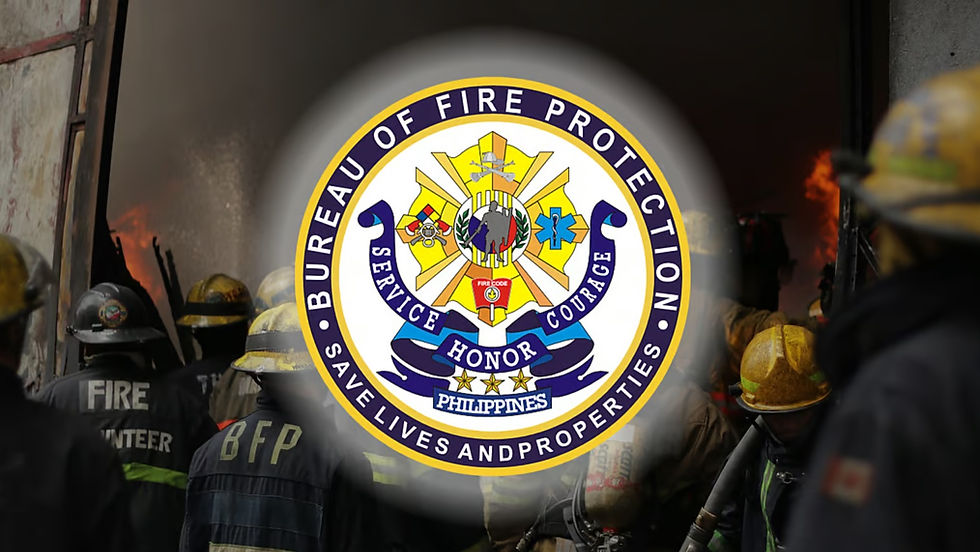Fire prevention month: Essential safety tips
- Balitang Marino

- Mar 6, 2025
- 2 min read

March is Fire Prevention Month, making it an ideal time to remind the public about the importance of fire safety.
Fires continue to pose a significant threat, impacting communities from the very beginning of the year. For instance, the Bureau of Fire Protection (BFP) in the National Capital Region (NCR) reported nine fire incidents on the first day of 2025 alone.
As the dry season sets in and the risk of fires rises, the public is encouraged to take proactive steps to protect their homes, businesses, and communities.
Here are some common causes of fires that can be avoided:
1. Electric malfunctions
Electrical faults are a year-round fire risk, especially in homes built with substandard materials. Overloaded circuits, faulty wiring, and improperly maintained electrical equipment are common culprits.
To prevent fires, ensure your electrical systems are properly installed, maintained and regularly inspected.
2. Unattended cooking
Fires can easily break out in kitchens, especially if stoves or gas lines are left unchecked. This is particularly common in areas with poor ventilation.
To prevent this, never leave your stove unattended. Always keep the area around your stove clear of flammable materials, and remain vigilant when handling fire or cooking equipment.
3. Improper disposal of cigarette butts
Yes, you read that correctly! Discarding still-lit cigarette butts can ignite dry grass or other materials, particularly in rural areas.
If you're a smoker, be responsible: always dispose of your cigarette butts in designated containers and avoid smoking near flammable materials, especially outdoors.
4. Faulty appliances
Many Filipino homes continue to use old or damaged appliances, which can be a fire risk. Electrical fans, air conditioning units and other household items, when improperly maintained or used beyond their lifespan, can easily overheat.
Regularly inspect appliances and replace faulty or outdated items. Avoid using appliances that are damaged.
In addition to awareness, proactive measures can help reduce the risk of fire. Here are some essential fire safety tips:
1. Create a fire escape plan
It's vital to have an evacuation plan in place for both residential areas and businesses. Ensure everyone knows where the fire exits are, and practice drills regularly.
2. Clear fire hazards
Maintaining a clean and organized space is key. Store combustibles like paper, cloth, and chemicals away from heat sources. Also, make sure to dispose of garbage and dry leaves properly.
3. Install fire extinguishers
Having a fire extinguisher on hand is essential for immediate response during a fire emergency. Make sure everyone in the building or household is familiar with how to use it correctly, following the PASS method — Pull, Aim, Squeeze, and Sweep.
4. Prepare important documents and valuables
If you live in a fire-prone area, it's important to not only have fire safety equipment in place but also to protect your valuable belongings. Store important documents like identification cards, birth certificates, and financial records in a fire-resistant bag that can be quickly grabbed in an emergency.
Source: www.tribune.net.ph





Comments